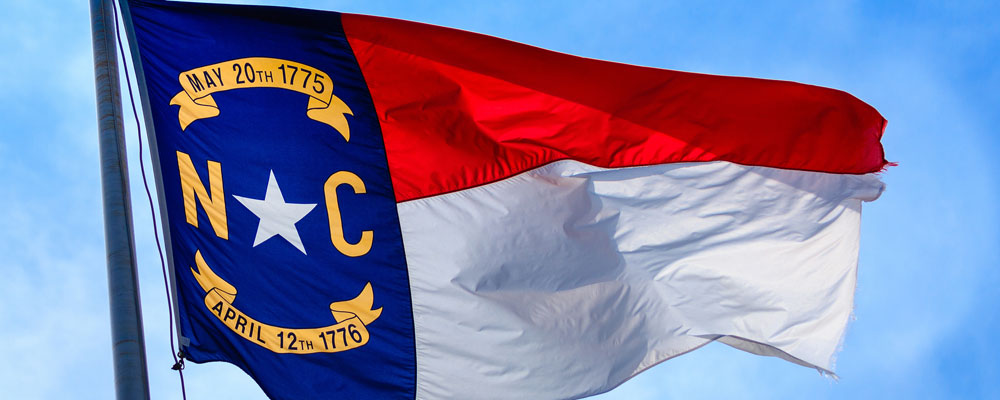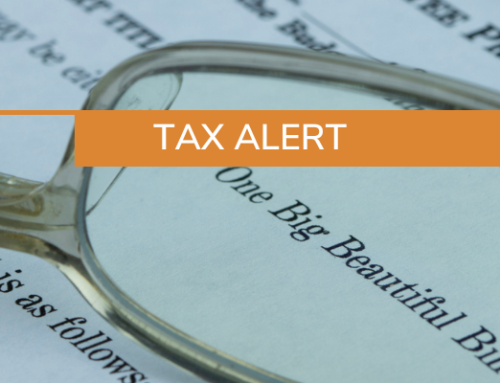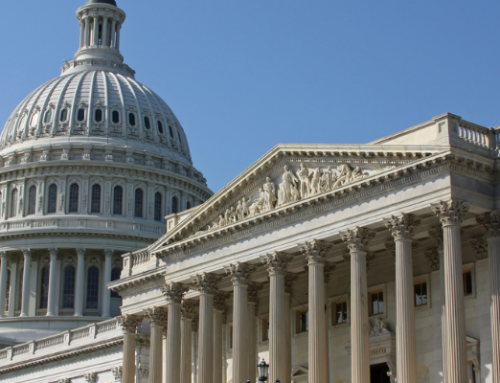Some North Carolina (NC) employers are getting a retroactive tax break for 2020 and 2021 if they were eligible for the valuable federal Employee Retention Credit (ERC).
House Bill 243 (HB 243), which was passed just two days after the 2021 business income tax return deadline on March 17, 2022, mostly makes technical clarifications to the state’s current year budget. A small but impactful tax change was included in the legislation that will help employers that previously claimed ERC lower their state tax liability for the last two years.
What This Means for North Carolina Businesses
Under the most recent NC law, employers claiming the ERC were required to reduce both their federal and NC wage expense deduction by the amount of their eligible federal credit amount, resulting in the ERC being included in the taxable income calculation for both federal and NC purposes, even though they received no corresponding additional NC tax credit or benefit relating to ERC. This wage expense adjustment requirement resulted in NC employers paying a higher state tax liability.
Now, these NC employers will be permitted to reduce their total state taxable income for 2020 and 2021 by the total amount of the federal ERC they claimed, resulting in the ERC refund being completely tax-exempt for NC tax purposes.
The North Carolina Department of Revenue issued the following updated ERC guidance on March 18 after the passage of HB 243:
“The amount by which a deduction for an ordinary and necessary business expense was required to be reduced or was not allowed under the Code because the taxpayer claimed a federal employee retention tax credit against employment taxes in lieu of a deduction. The deduction is allowed only to the extent that a similar credit is not allowed against the North Carolina income tax liability for the expenses.”
Affected state income tax returns for 2020 and 2021 will now need to be amended and refiled to claim the additional expense deduction due to the late passage of the tax legislation after most business had already timely filed their 2021 business income tax returns on March 15.
In recently issued taxpayer guidance related to HB 243, the NC Department of Revenue stated that they will not automatically recalculate a taxpayer’s NC taxable income or additional refund amount relating to the ERC adjustment and that amended return(s) will be required following the normal amended return filing process.
The ERC expense adjustment should be reported as an NC subtraction from federal adjusted gross income on the applicable business or individual tax form schedule on the 2020 and/or 2021 tax return.
Changes to the Business Recovery Grant Program under HB 243 and New Award Eligibility
The North Carolina Department of Revenue (NCDOR) will begin accepting applications for phase two of the Business Recovery Grants on May 2, 2022. Under the new grant rules included in HB 243, certain businesses that were excluded from the first round of grant applications earlier this year can now apply.
Initially, businesses had to show a decline in gross receipts of at least 20 percent defined as an economic loss using Form E-500 or Form 1065. For many businesses that don’t collect sales tax, this limitation made them ineligible for Business Recovery Grants. S-Corps, C-Corps, single-member LLCs, and sole proprietors were all affected along with many businesses in the service industry that had suffered significant economic losses.
The 20 percent decline in gross receipts rule is still in place; however, businesses can now also demonstrate the loss in revenue by using Forms 1120, 1120-S, 1040 Schedule C, or 1040 Schedule F as documentation for their gross receipts reduction during the two reporting periods in addition to the original sales tax reporting option.
More importantly, there was a grant limitation in place regarding businesses that had received a PPP loan or employee retention credit (ERC). Businesses in non-hospitality industries that previously received an economic federal award such as the popular PPP loan were initially ineligible to participate in the NC grant program. That limitation was removed in this latest program update.
Significantly more businesses will now be eligible to participate in this NC grant program at lower award amounts if they can document an economic loss. Businesses previously excluded earlier this year from phase one of the grant program due to receiving a PPP loan or other federal awards should reconsider applying now. The application period for phase two of the program, with its more favorable award rules, may mean an extra influx of cash if the business still meets the economic loss requirement using the revised criteria. The new reimbursement grant award is up to 10% of the economic loss suffered between the years ending February 29, 2020 (“Pre-COVID Period”) and February 28, 2021 (“Post-COVID Period”).
HB 243 also amended the NC taxability of the Business Recovery Grant Program along with other NC business grant programs. Grant payments received from most federal and state governments continue to be taxable at the federal level. Now under HB 243, taxpayers may deduct certain grant proceeds from their NC taxable income. The change is retroactive to January 1, 2020, meaning taxpayers that received previous taxable grant payments in 2020 and/or 2021 may want to consider amending their state return to remove the grant payments from their original NC taxable income calculation.
The deadline to apply for phase two of the grant program is June 1, 2022.
Businesses should start working now on the grant application process and gathering their gross receipts documentation. The updated grant application and additional program information was just released by the NCDOR is available at https://www.ncdor.gov/business-recovery-grant
PBMares clients with questions about how to amend prior year returns to claim the ERC deduction for North Carolina taxes or applying for phase two of the NC business grant program can contact Charles Dean Smith, Jr., CPA, Partner in the firm’s New Bern, NC office.





